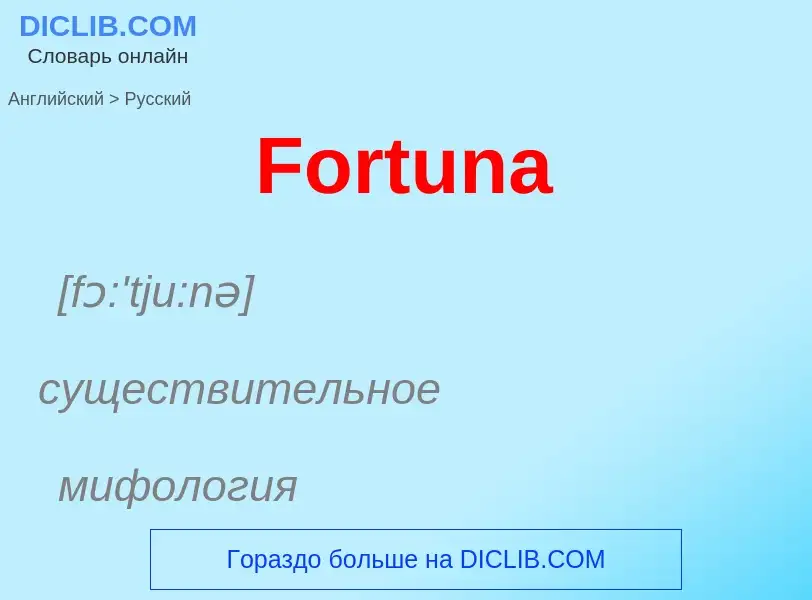Перевод и анализ слов искусственным интеллектом ChatGPT
На этой странице Вы можете получить подробный анализ слова или словосочетания, произведенный с помощью лучшей на сегодняшний день технологии искусственного интеллекта:
- как употребляется слово
- частота употребления
- используется оно чаще в устной или письменной речи
- варианты перевода слова
- примеры употребления (несколько фраз с переводом)
- этимология
Fortuna - перевод на русский
[fɔ:'tju:nə]
существительное
мифология
Фортуна
Определение
Википедия

Fortuna (Latin: Fortūna, equivalent to the Greek goddess Tyche) is the goddess of fortune and the personification of luck in Roman religion who, largely thanks to the Late Antique author Boethius, remained popular through the Middle Ages until at least the Renaissance. The blindfolded depiction of her is still an important figure in many aspects of today's Italian culture, where the dichotomy fortuna / sfortuna (luck / unluck) plays a prominent role in everyday social life, also represented by the very common refrain "La [dea] fortuna è cieca" (latin Fortuna caeca est; "Luck [goddess] is blind").
Fortuna is often depicted with a gubernaculum (ship's rudder), a ball or Rota Fortunae (wheel of fortune, first mentioned by Cicero) and a cornucopia (horn of plenty). She might bring good or bad luck: she could be represented as veiled and blind, as in modern depictions of Lady Justice, except that Fortuna does not hold a balance. Fortuna came to represent life's capriciousness. She was also a goddess of fate: as Atrox Fortuna, she claimed the young lives of the princeps Augustus' grandsons Gaius and Lucius, prospective heirs to the Empire. (In antiquity she was also known as Automatia.)


![orb]] of sovereignty between thumb and finger in a Dutch painting of ''ca'' 1530 ([[Musée des Beaux-Arts de Strasbourg]]) orb]] of sovereignty between thumb and finger in a Dutch painting of ''ca'' 1530 ([[Musée des Beaux-Arts de Strasbourg]])](https://commons.wikimedia.org/wiki/Special:FilePath/Allegory of Fortune mg 0010.jpg?width=200)

